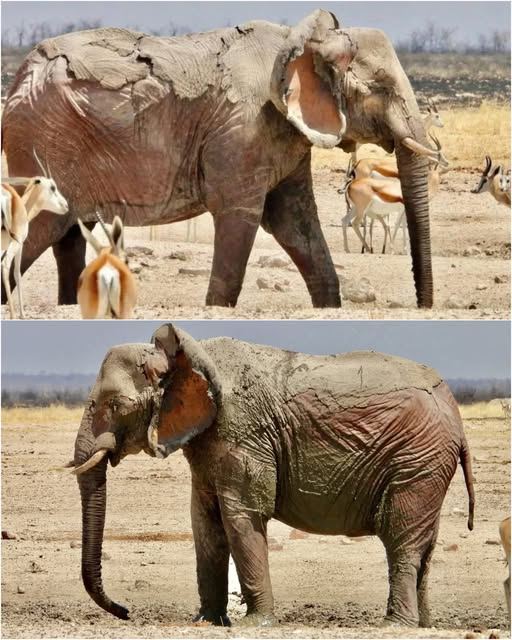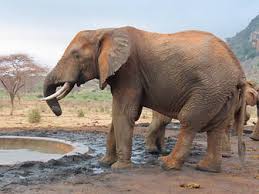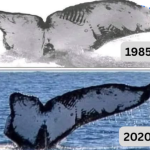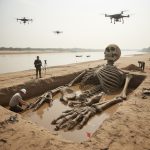THE ELEPHANT WHO WALKED THROUGH FIRE: A STORY OF SURVIVAL AND A WARNING FOR A WARMING WORLD

THE ELEPHANT WHO WALKED THROUGH FIRE: A STORY OF SURVIVAL AND A WARNING FOR A WARMING WORLD
Rangers in Etosha National Park recently witnessed a scene that was as heartbreaking as it was extraordinary: a lone bull elephant emerging from the smoke of a wildfire, his immense frame scarred by flames yet still moving forward. His ears were scorched, his skin cracked, and his trunk darkened by soot. Each step he took across the ash-covered ground seemed to carry the weight of his struggle — and his remarkable will to live.
The fire had swept directly through his grazing territory. Rather than fleeing, the elephant had pushed through the burning landscape, fighting for survival in conditions few creatures could endure. When wildlife veterinarians reached him, the full extent of his injuries became painfully clear. His burns ran deep, cutting through layers of skin, and infection had begun to take hold. It was evident that every breath he drew was marked by unimaginable pain.
Despite the team’s efforts to examine and assess him, there was no path to recovery. Faced with the gravity of his condition, the veterinarians made the most difficult decision any wildlife team can make: to end his suffering humanely. In those final moments, he was surrounded by people who honored his strength and the resilience he had shown.
Yet his story is not defined by tragedy. It stands as a powerful warning. Africa’s elephants are no longer threatened only by poaching or habitat loss. They are increasingly at risk from a changing climate — from hotter, more frequent fires to prolonged droughts and shrinking landscapes. These pressures are reshaping the world they depend on.
The bull elephant’s final journey has become a symbol not simply because he survived the flames, but because he fought through them. His silent resilience offers a stark reminder that even the mightiest animals are vulnerable in a warming world. His walk through fire speaks for all the giants who cannot speak for themselves — and urges us to act before more of them are lost.












